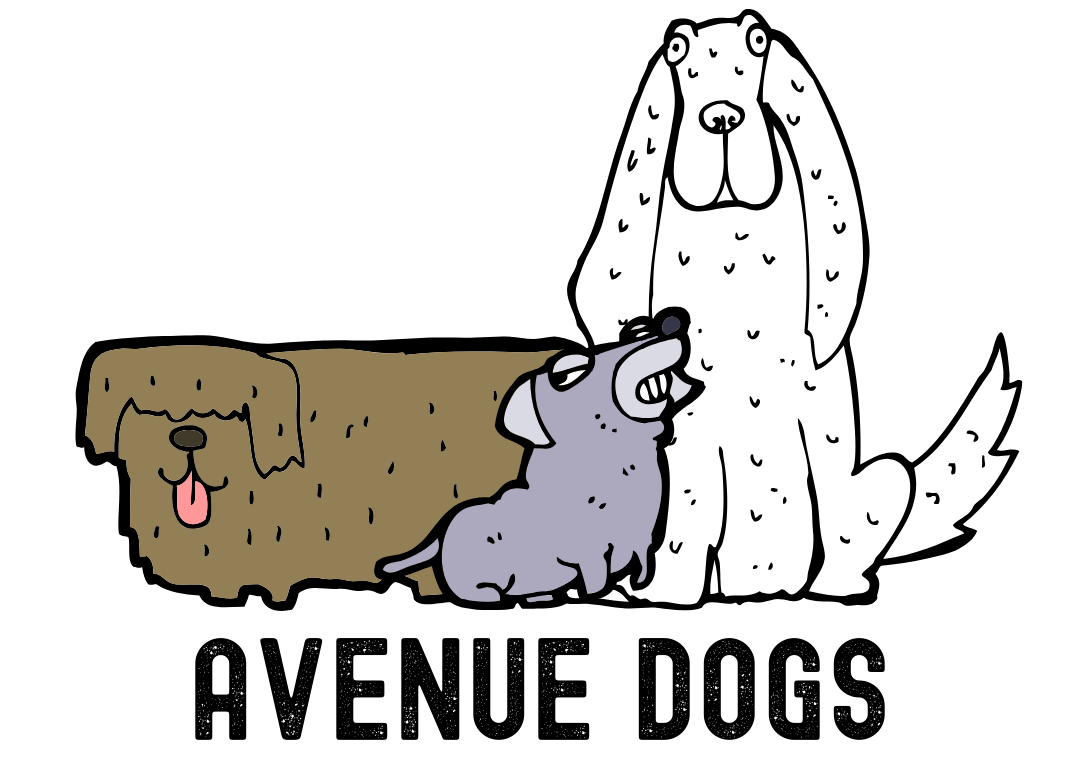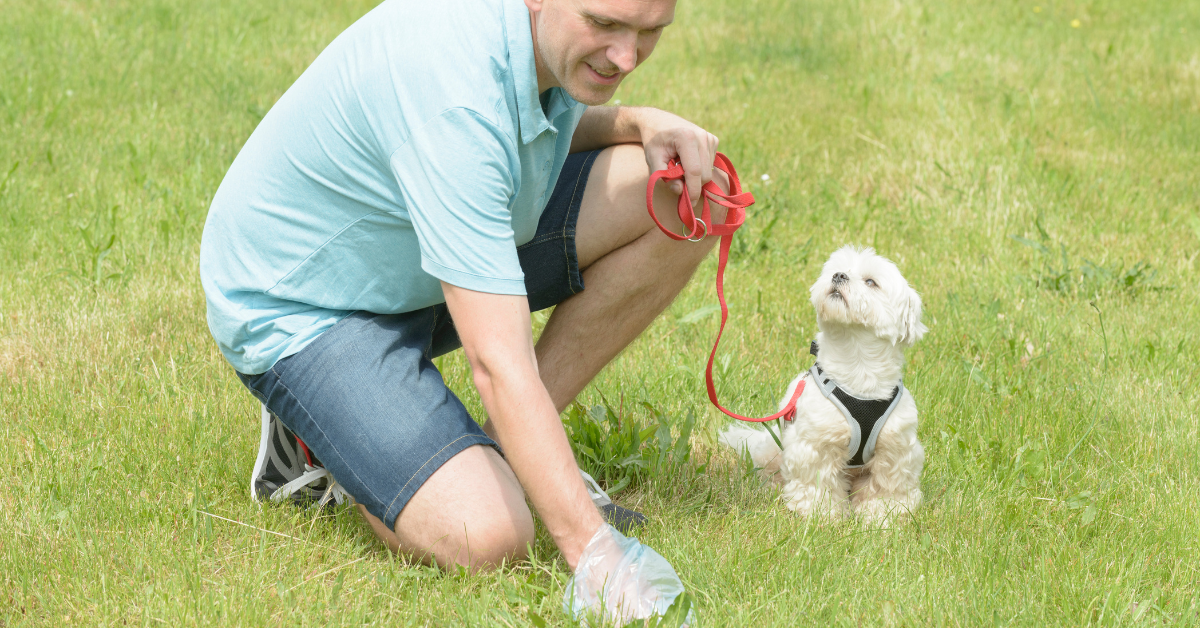


Dog poop can tell you a lot about the health of your best buddy…if you have the correct information. A dog’s food motility (the movement of the food inside the canine digestive system) is different from ours. A dog takes less time to process and digest food than we humans do. So, if your dog has eaten something that has disagreed with them, chances are you’re going to know fairly quickly by taking a look at their dog poop.
This doesn’t mean sifting through it or analyzing it, but just taking a cursory look to determine if there are any foreign objects in the dog poop, or if it’s a weird color. Even a quick glance at your pup’s poo could alert you early of a problem with your dog’s health, and your vet can recommend treatment before the issue gets worse.
As a vet, I get a lot of questions about dog poop. Below I’ve answered some of the most frequently asked questions I get. If you have a different question or concern, I’ve added my contact details at the end of this post. Feel free to reach out for an inexpensive, online consultation.
Dog Poop – How Much and How Often
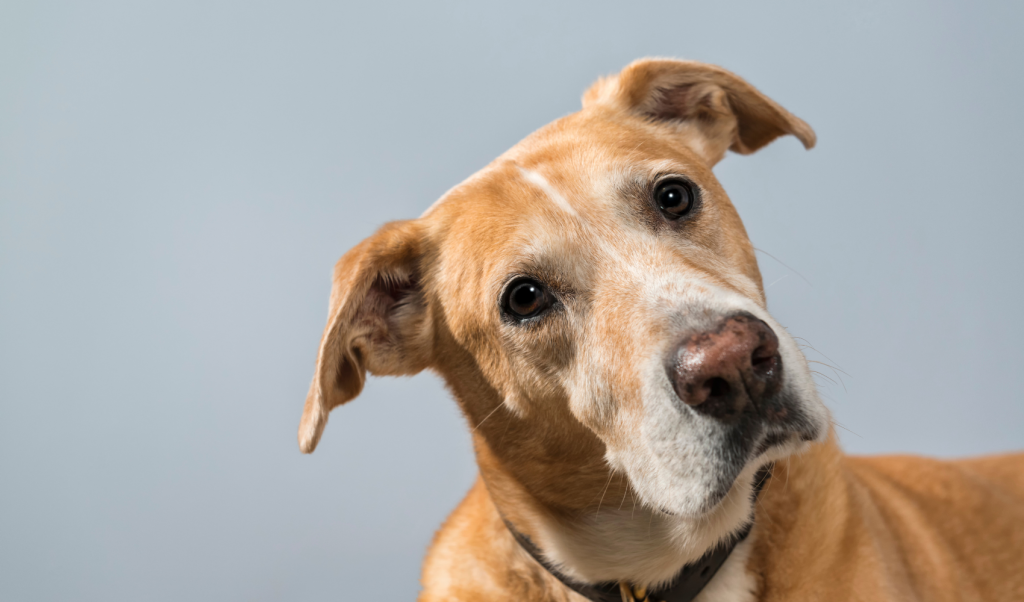


Unlike cats, dogs have a wide variety of variations in their species, and different sizes of dogs are different in terms of food eating and pooping. The amount of dog poop depends on the size of the breed and the amount of food your dog eats.
If you have a small dog who loves to eat kibble, this pooch might poop more often than a large dog eating wet food. Dogs are omnivores and need to eat more than just meat. A balanced diet should have fruits and veggies, and these two things are also responsible for increasing the amount of poop.
How Long After A Dog Eats Do They Poop?
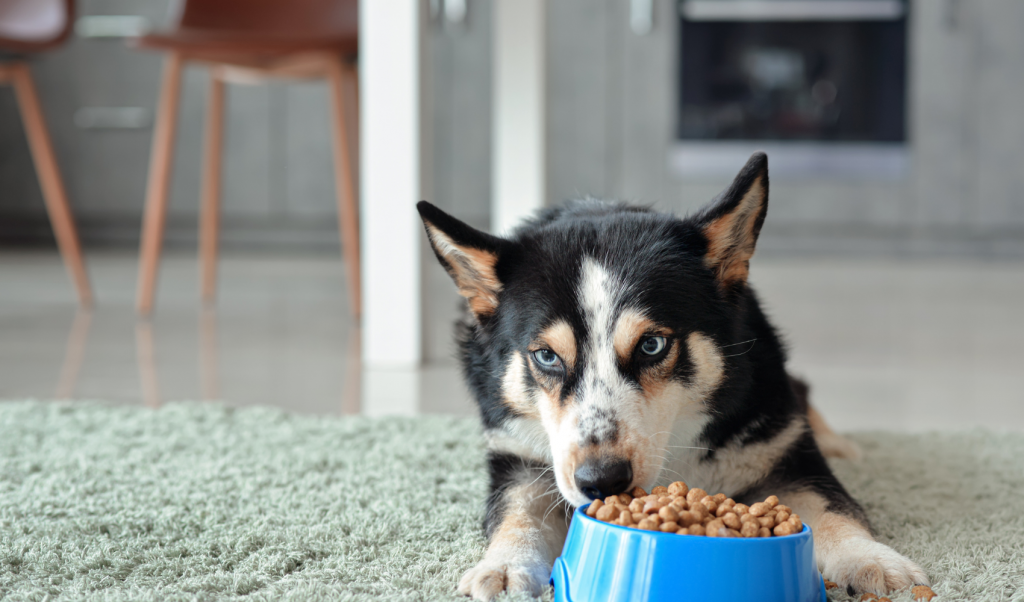


There are two types of answers to the question of how long after a dog eats, do they poop.
If you are asking when you should take the dog outside to do the business after eating, the time is 30 minutes. Most of the time, when dogs wake up, they feel the urge to go. The next time they eat, their intestines like to throw out previously processed food after 30 to 60 minutes.
The second answer is for food digestion. When a dog eats the food, it will take 8 to 10 hours to pass through the intestine and offer nutrition to the dog. The food completes its journey generally in that time, and some dogs with a slow metabolism can have an extended time.
How Many Times A Day Should A Puppy Poop?
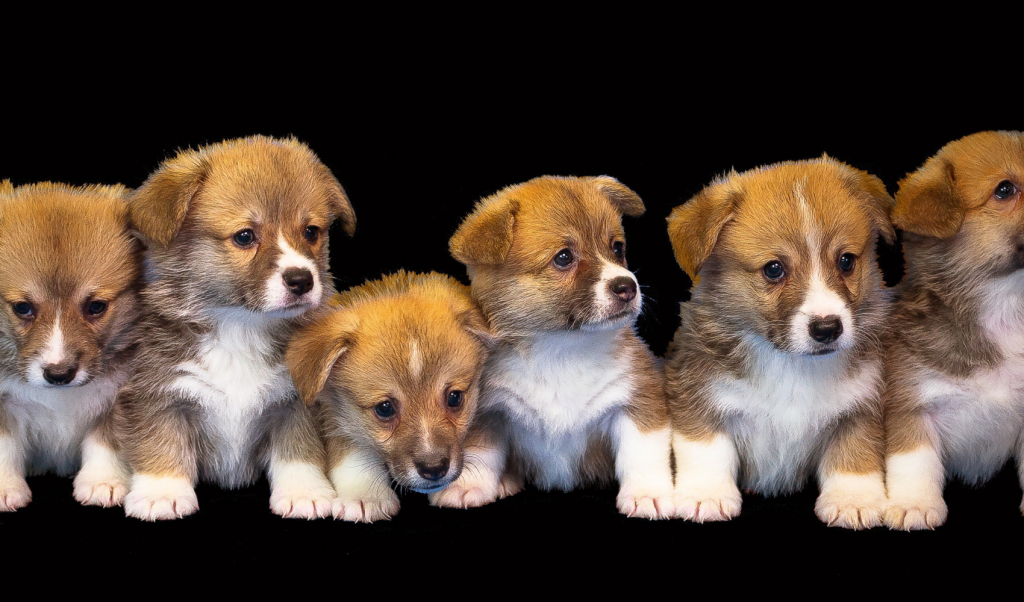


The answer to how many times a day puppy should poop is simple. In their early days, a puppy will poop after every feeding. When caring for a newborn pup, you must keep them clean and warm after every eating and pooping frenzy.
As the puppy grows, the pooping becomes less frequent. A puppy poops 6 to 10 times a day until they’re three to four weeks. You must learn the cues and their schedules to avoid any accidents.
How Many Times A Day Should A Dog Poop?



An adult dog is a different story than a puppy. When you have an adult dog, things can still be inconsistent. The question of how many times a day dog should poop depends on different variables. Some dogs are just pooping machines. These dogs are happy and healthy and poop 3 to 5 times daily. There is nothing wrong with these dogs; it’s just the metabolism.
At the same time, there are small and delicate dogs who poop only once a day. Both are normal and totally dependent on the breed and feeding habits.
Why Is My Dog Pooping So Much?
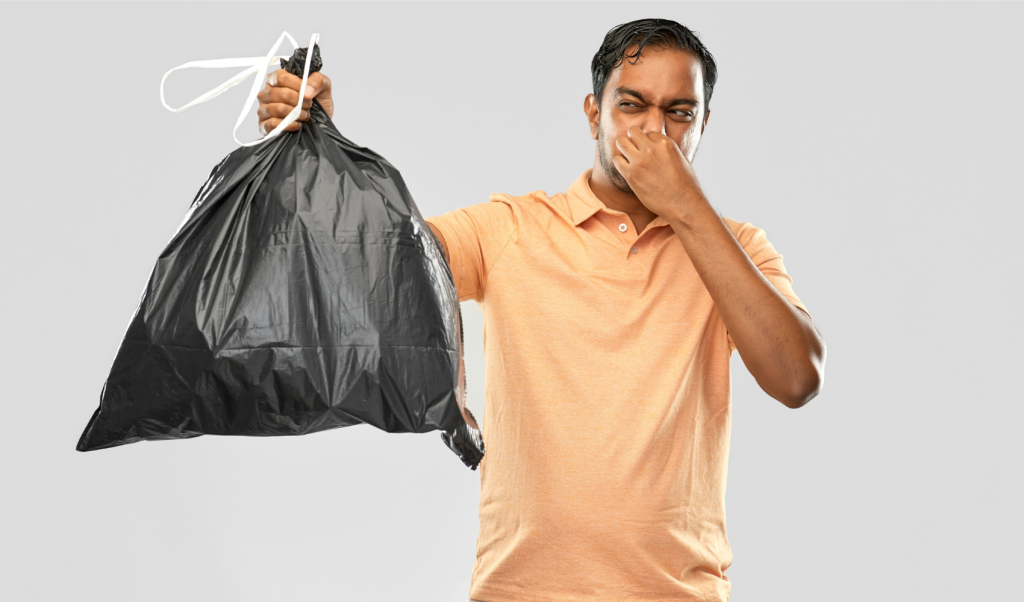


If your dog is a healthy eater and loves to eat veggies and fruits, the pooping will be more frequent. You don’t need to ask “why is my dog pooping so much”, because this is normal. The issue with your dog pooping too much comes when the dog is eating the same food, in the same amount, yet pooping increases in amount and frequency. Only a trip to the vet, or an online consult, can determine why your dog is pooping so much.
If your dog is pooping less consistently or has watery poop, this is a sign of diarrhea, and you should take your dog to the vet. If your dog is pooping irregularly, they may have gotten a hold of some food without your knowledge. Give your buddy a couple of days to make things normal. If the more or less frequent pooping persists, consult your vet because it could be the start of some digestive issue.
Dog Poop – Why is This in my Dog’s Poop?
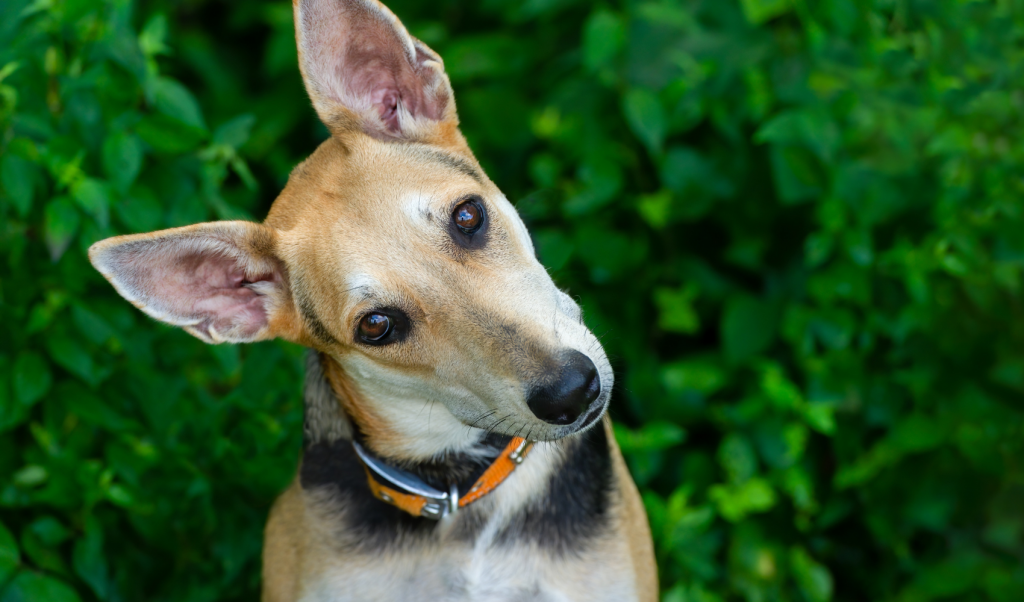


A normal dog poop will have nothing in it and look brown and consistent. If there are foreign objects, mucus, or white rice-shaped objects; this is an alarming situation. You should keep an eye on your dog’s poop because it tells a lot about their health condition.
I hear, “Why is this in my dog’s poop?”, quite often in my practice. Below are some of the most common types of this question.
Why is my Dog Pooping Blood?



It is an alarming situation if you see your dog pooping blood or blood clots. You should keep an eye on the food intake; if the dog is eating bones, stop feeding raw or cooked immediately. Some bone fragments can injure the intestine and make the dog poop blood.
When the food is the same and the dog is pooping blood, this could be because of an intestinal infection, rectal injury, or internal bleeding. You must take it seriously and rush to the vet for diagnosis and care.
What if There is Mucus in Dog Poop?
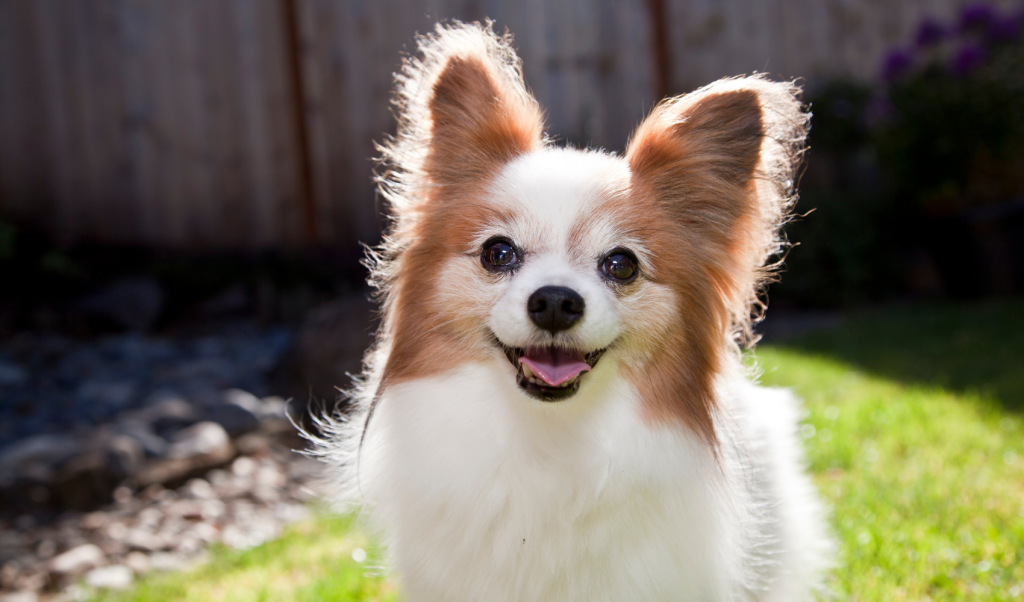


The mucus in dog poop can be because of gut flora imbalance or digestive issues. Things will become right after a couple of days, but if it remains persistent, consult your vet. The presence of mucus in the poop for more than two days can be because of parasites or severe digestive issues.
What if There are White Specks in Dog Poop?
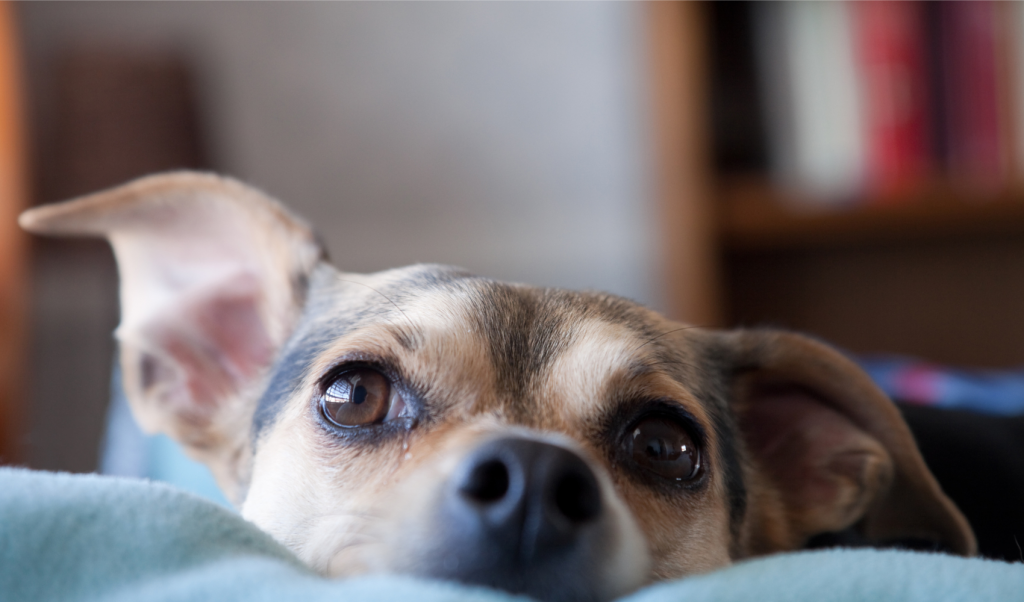


If your dog has eaten rice during diarrhea, there are chances that the poop will show a couple of grains. But when you see white specks in the dog poop of a healthy canine, this is a sign of tapeworm infestation. You must take your dog to the vet for tests and medication to keep them safe from the damages.
Is Grainy Dog Poop an Issue?
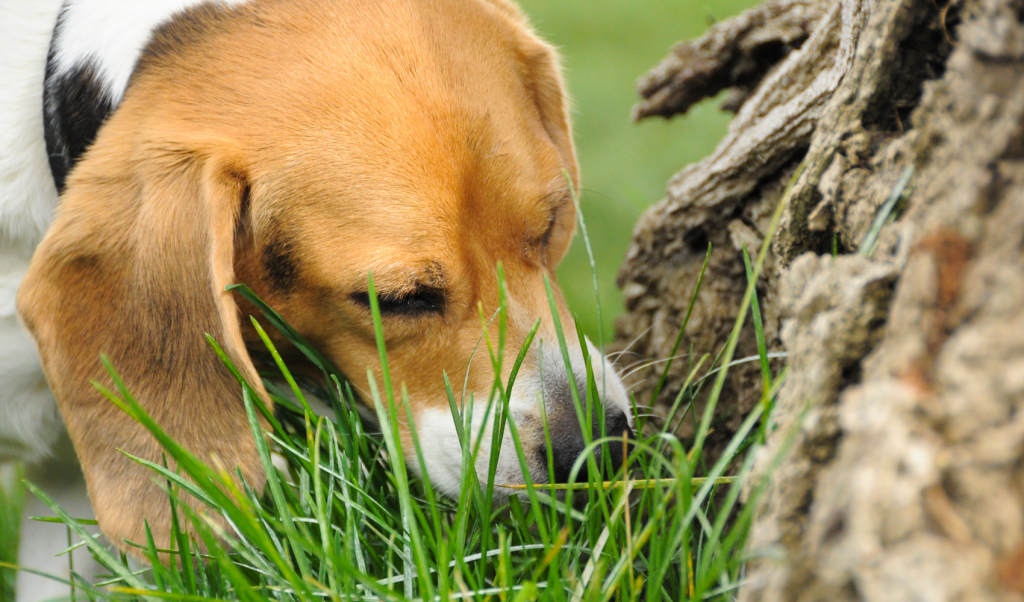


One or two grainy dog poops in a day is not a biggie, and you must not get panicked. Dogs have fecal changes when there is a change in their food or environment. If your dog has been having grainy poop for more than two days in a row, that’s the time to be concerned, and you should add your vet into the equation.
A persistent grainy poop is a sign of flea infestation, digestive issues, or food problems. You must consult your vet regarding the change in their food, test, or medication.
Dog Poop – Why is it This Color?
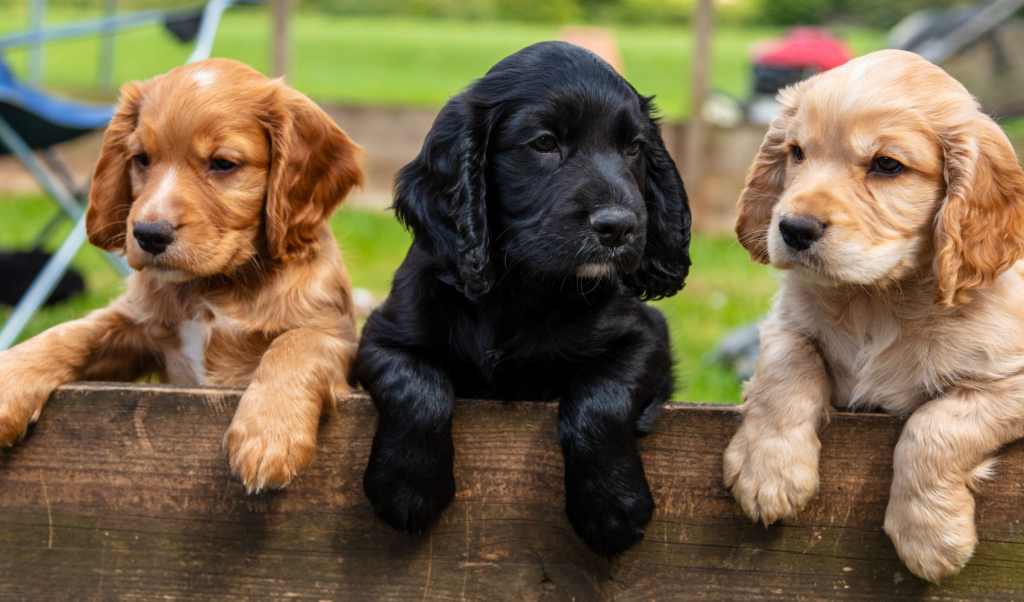


According to the experts, dog poop is dark brown without any mucus or presence of any objects. Any color other than that is a sign of changing dog health conditions. With knowledge of dog poop color, you can understand the brewing conditions inside their GI tract.
Dog poop color change is a sign that helps you take timely measures to help your dog enjoy a good quality of life. When you diagnose a disease early, you can also help your dog enjoy longevity without any chronic issues.
Various colors of dog poop tell a different story about their inner system and food quality. Follow this vet guide to know more about the health and condition of your dog, based on its poop color, to increase their longevity and quality of life.
Is Mustard Yellow Dog Poop a Problem?



Mustard yellow dog poop is a sign of liver issues. If you do not take timely measures and take your dog to the vet, the increasing damage can claim the life of your pet. When your dog poops mustard yellow, you must consult the vet regarding care and medication.
Should I Worry About Orange Dog Poop?
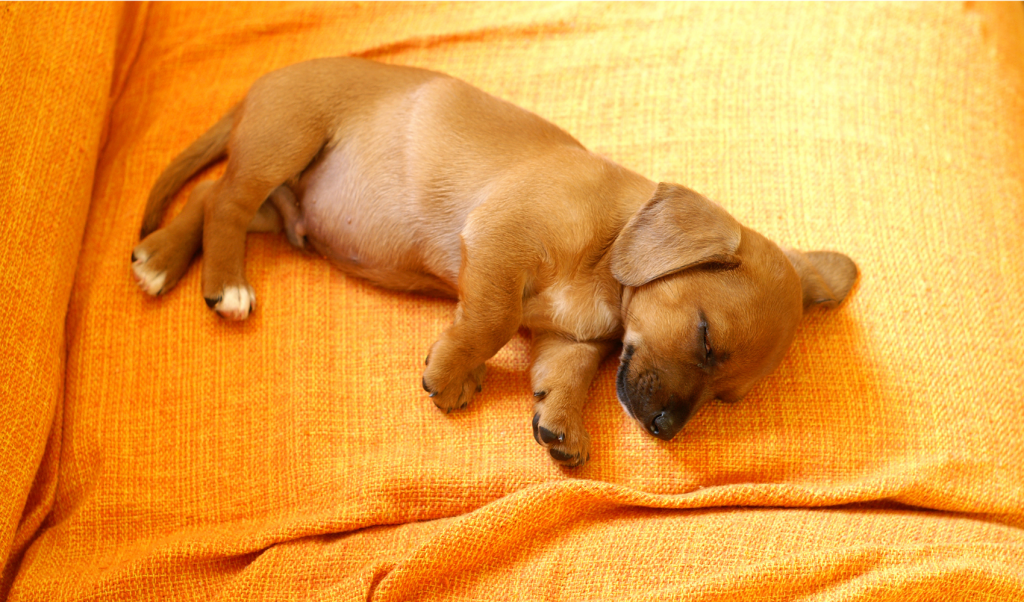


This unusual color of poop is because of chicken or rice. The resulting color will be orange when the food passes from the digestive system faster. An orange dog poop for a day or two is not a problem. But more than this is the sign of gallbladder or liver issue, and you must take your dog to the vet for tests and medication.
What if the Dog Poop is Black but not Tarry?



The most alarming color in dog poop is black. If your best buddy is pooping black, it means there is a foreign body, parasite, or toxin in their digestive system. Regular black poop is also a precursor for liver failure. A dog suffering from pancreatitis will also poop black.
When the dog poop is back but not tarry, this is also a sign of internal bleeding in the stomach, like an ulcer or bleeding in the small intestine. I suggest a trip to the vet if your dog is having black poop for more than a couple of days.
What if my Dog has Green Poop?
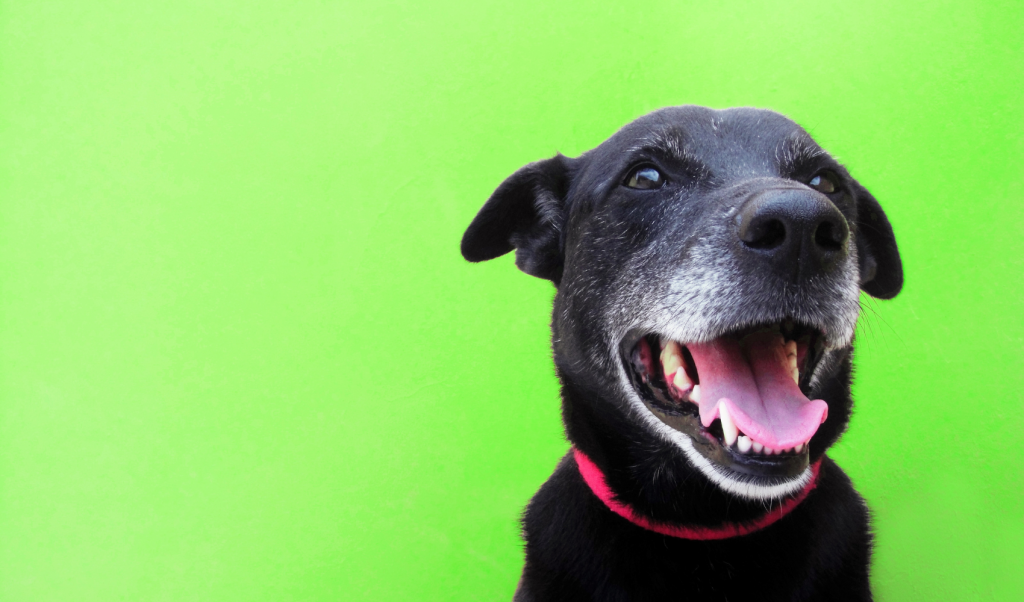


If your dog has green poop patches or green objects in the feces, it is most likely because of grass eating. You must keep your dog from the lawn unsupervised as grass eating is not good for the dogs.
If the dog poop is green and sloppier, this is a sign of a gallbladder issue. The high amount of liver bile changes the color, and the dog will start losing weight if you do not take corrective measures immediately.
What if the Dog Poop Looks Like Strawberry Jelly?
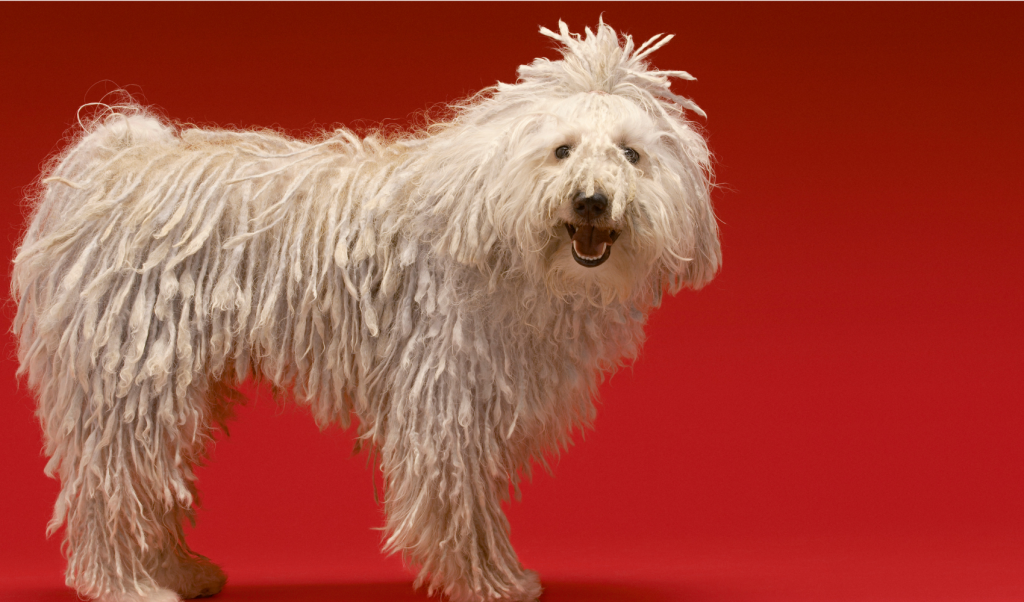


This is bad if the vomit or dog poop looks like strawberry jelly or jam-like liquid. It could be because of hemorrhagic gastroenteritis, and this condition is severe. Any delay can be fatal if your dog is suffering from this condition. You must remain calm, keep your dog close to you, and avoid making your dog run or walk for long.
Take the dog to the vet immediately for medication and care if their dog poop looks like strawberry jelly.
Why you Should Keep an Eye on Your Pup’s Dog Poop



Vets diagnose any disease or medical issue in your dog through symptoms and tests. Dog poop is a perfect specimen that describes the dog’s health and condition of the inner systems. If you keep an eye on the dog poop, you can help your vet diagnose any brewing medical issue or condition before it worsens. The dog poop color and consistency tells vets almost everything they need to know to ward off diseases and make your dog healthy.
If you have any non-emergency concerns or questions about your dog’s poop, or any other issue with your pup, please feel free to schedule an inexpensive, online consultation with me below.
(Keep in mind: Avenue Dogs is reader-supported. When you buy through links on our site, we may earn an affiliate commission (with no additional cost to you)).



Dr Saba Afzal is a clinical veterinarian and a professional content writer. I am determined to disseminate ideas worth spreading to pet owners everywhere around the world. As an experienced veterinarian, I am dedicated to delivering accurate and updated knowledge to pet owners
I have more than five years of experience in content writing on different online platforms, including Fiverr, Upwork, and Guru. My expertise is in Microbiology, Biotechnology, Pets Animal Management and handling, and training. You will find my content truly fascinating, unique, and compatible with the world’s standards. I always write original content without any plagiarism and taking care of any grammatical errors.
I will be happy to address your queries and comments. Contact me here
